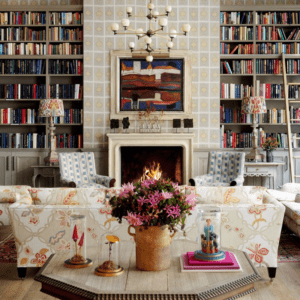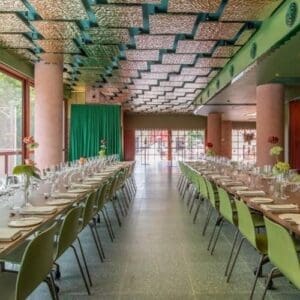 Although Muslim tourists constitute a large and growing sector of the travel market, greater awareness is needed of their specific requirements according to Ph.D. student Ms Hera Oktadiana and Dean Kaye Chon of the School of Hotel and Tourism Management (SHTM) at The Hong Kong Polytechnic University and a co-researcher. In a recently published review paper, the researchers highlight that some aspects of compliance with Islamic teaching are well known, such as the need for Halal food and the non-consumption of alcohol. Yet, they argue, more attention must be paid to other areas such as the role of travel for well-being in Islamic life and supporting Islamic religious and cultural events, among others.
Although Muslim tourists constitute a large and growing sector of the travel market, greater awareness is needed of their specific requirements according to Ph.D. student Ms Hera Oktadiana and Dean Kaye Chon of the School of Hotel and Tourism Management (SHTM) at The Hong Kong Polytechnic University and a co-researcher. In a recently published review paper, the researchers highlight that some aspects of compliance with Islamic teaching are well known, such as the need for Halal food and the non-consumption of alcohol. Yet, they argue, more attention must be paid to other areas such as the role of travel for well-being in Islamic life and supporting Islamic religious and cultural events, among others.
The Muslim travel market, which the researchers note is often referred to as ÒHalal tourismÓ, is expected to grow rapidly with the increase in the Muslim population worldwide. In 2013, for instance, Muslim travellers generated US$140 billion in outbound receipts, amounting to 11 per centÊof the global market and surpassing the amounts for both the United States and China. This figure, the researchers write, is predicted to reach US$238 billion by 2020. With the Muslim population expected to grow to 2.8 billion (30 per centÊof the world population) by 2050, the Halal travel share of the global travel market is certain to continue rising.
Yet the researchers suggest that this growing market presents a challenge for the tourism industry. The practice of Islam is bound by specific political and national policies that require adherence to the QurÕan. ÒThis is not a trivial force for the lives of the citizens and those who travelÓ, the researchers warn, Òsince failure to observe the national regulations both at home and abroad can result in severe punishmentsÓ. Muslim tourists thus have particular requirements that need to be recognised and understood.
As the researchers note, the QurÕan generally regards travel in a positive light because it has many benefits that help to Òbalance physical and spiritual statesÓ. Nevertheless, as Muslims must continue their adherence to Sharia law when they travel, destinations that wish to attract Muslim tourists need to Òattend to multiple aspects of the Halal lifestyleÓ. These include food, accommodation and transport preferences, and the provision of prayer facilities, separate facilities for males and females, alcohol free bars and other amenities that Òserve the guests and respect their culture and religionÓ.
The researchers identify Malaysia as the Òleading Halal destinationÓ, with Muslims accounting for 20 per centÊof the countryÕs visitors in 2014. One reason for MalaysiaÕs popularity is the ease of accessing Halal hotels and restaurants, public prayer facilities and even Halal hospitals and medication. Other destinations hoping to attract Muslim travellers need to understand and cater to Muslim travellersÕ specific needs. Or, as the researchers put it, Òa comprehensive recognition of the touristsÕ concerns is requiredÓ. They were thus interested in what kind of information might be available to help such destinations, and what was still lacking.
To ascertain the present state of knowledge about Halal tourism, the researchers searched for articles in academic journals, online media and hospitality and tourism websites using relevant keywords such as ÒIslamic tourismÓ, ÒHalal travelÓ and ÒHalal restaurantsÓ. Around half of the relevant articles they found were from academic publications and online media and half were from hospitality and tourism industry sources, including the two biggest online Muslim tourism websites, halalbooking.com and halaltrip.com.
In assessing the content of the articles, the researchers drew on the coordinated management of meaning theory, seeking to understand the process of communication itself rather than the Òroots of behaviour, its driving forces and spiritual valuesÓ. The theory, they explain, offers the possibility of understanding the people involved in cross-cultural contact by considering their forms of address, the key episodes in their world, their relationship patterns, the life-scripts they pursue and the cultural patterns that dominate their lives. The researchers thus classified the articles into the five components of communication outlined by the theory: Culture, Verbal and non-verbal behaviour, Episodes, Life scripting and Relationships.
Culture, they note, is Òthe largest set of issues that inform a cultural groupÓ, covering such essentials as expectations of honesty and political and religious tolerance. Verbal and non-verbal behaviour covers Òwords and labels used to describe objects and conceptsÓ, terms of address and non-verbal patterns such as eye contact. Episodes range from eating habits and rituals, religious practices and rules about storytelling to conventions for payment and tipping, among others. Life scripting covers individualsÕ views of themselves, their actions in relation to others and their aspirations. Finally, the Relationships component includes responsibilities to others of both sexes and acceptable treatment.
The most frequently discussed component of communication in all of the publications considered was Episodes, covering issues such as Halal food, restaurants, accommodation and the overall concept of what the researchers describe as a ÒMuslim-friendly destinationÓ. In particular, the preparation and consumption of food and the non-consumption of alcohol are Òwell known and documented repeatedlyÓ.
Muslim travellersÕ requirements in terms of prayer also receive plenty of attention, although the researchers note a lack of focus on festivals and holidays that are important to the Muslim community. In particular, they point to neglect in the consideration and management of Eid-ul-Fitr, the celebration at the end of Ramadan. They contrast this with the great importance attached to celebrating Chinese New Year for Chinese tourists away from their home communities.
Other areas, in contrast, receive very little coverage. The relationships component of communication, for instance, is concerned with individualsÕ responsibilities and obligations to family, friends and others. Few of the publications considered the rules and preferred segregation of men and women in many settings, especially leisure facilities such as spas, swimming pools and massage and beauty facilities. The researchers point out that it is important for tourism providers to consider Òwho can be with whom in such spacesÓ, and whether it is possible to provide separate facilities or times so that guests can enjoy them while adhering to the need for segregation.
Greater attention could also be paid to certain aspects of the verbal and non-verbal components of communication. Although certain key Muslim needs, such as the rules about food, receive adequate coverage, there is little mention of appropriate forms of address, rules about touching, using the right hand to pass objects and preferences for social distance and eye contact. The researchers explain that non-verbal communication also includes acceptable Muslim dress codes and principles for covering the body. Host communities could benefit from specific advice on these issues, moderated according to the different requirements of the touristsÕ countries of origin.
Understanding how Muslim tourists approach Òbargaining, tippingÓ and their Òpreferred ways to shopÓ is another area that needs to be considered. Given the size of the Halal market, the potential spending power of Muslim tourists is huge and it makes sense to understand their consumer behaviour and preferences. Finally, the Life scripting component of communication is little considered, which leads the researchers to suggest that it offers a Òrich spaceÓ for anyone interested in benefiting from a greater understanding of the Òtransformational possibilities of tourismÓ among Muslims.
The researchers conclude that their focus on the components of communication offers a Òpragmatic position for non-Muslim researchers and destination managersÓ. It stresses that Òwe should study and plan for what Halal tourists want, but we can do this without needing to immerse ourselves in the sophisticated and complex cultures of the Islamic worldÓ. Paying sufficient attention to the under-considered areas they identify, the researchers argue, Òcould assist in building and enhancing Halal tourism globallyÓ.















